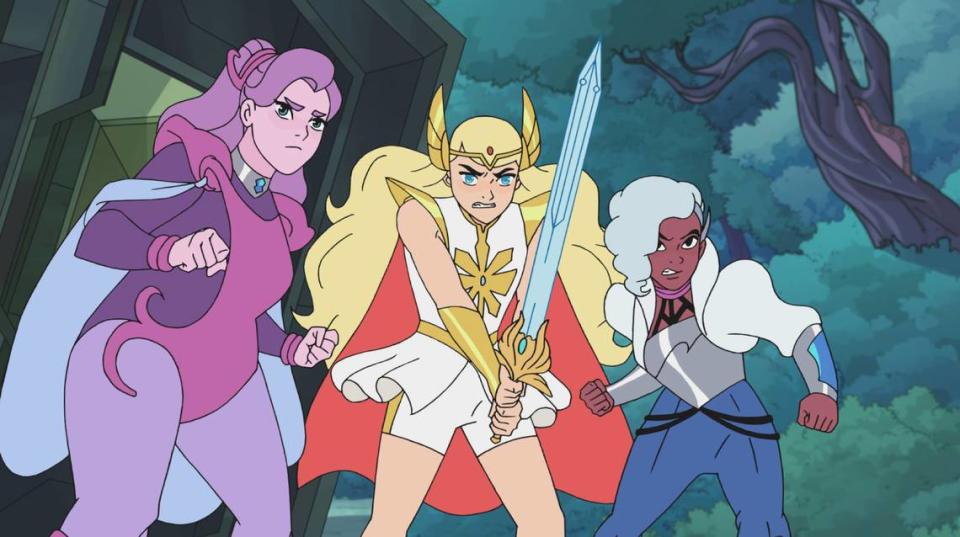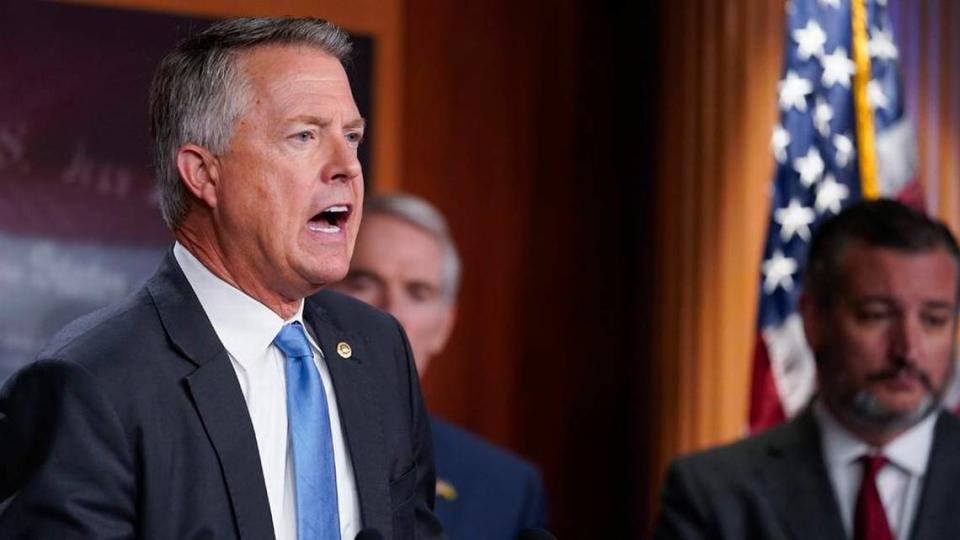Kansas senator demands TV rating update so parents can shield kids from LGBTQ characters
Kansas U.S. Sen. Roger Marshall waded into the culture wars on Wednesday and demanded changes to television ratings so parents could shield their children from LGBTQ representation in shows.
Marshall was the lead author on a letter to the TV Parental Guidelines Advisory Board asking them to update its ratings to inform parents whether a show contains content related to sexual orientation or gender identity.
“To the detriment of children, gender dysphoria has become sensationalized in the popular media and television with radical activists and entertainment companies,” the letter says. “This radical and sexual sensation not only harms children, but also destabilizes and damages parental rights.”
In a follow-up email, Marshall’s office emphasized that he is especially concerned about gender dysphoria, “the promotion of cosmetic treatments.”
The letter suggests that adults are harming and exploiting young audiences by showing LGBTQ characters, a trope that has been employed in opposition to the LGBTQ community since the 1970s, when Florida singer Anita Bryant led a campaign called “Save our Children” in an attempt to repeal local LGBTQ nondiscrimination laws.
When asked for examples about characters in children’s shows, Marshall’s office shared four shows — “Danger Force” and “The Loud House” on Nickelodeon, and “She-Ra and the Princesses of Power” and the upcoming “Dead End: Paranormal Park”on Netflix.

The TV parental guidelines provide parents with information to help them decide if a show is appropriate for their children. The guidelines were prompted by a 1996 law that asked the entertainment industry to create a voluntary rating system for television.
The letter — also signed by fellow Republican Sens. Steve Daines of Montana, Mike Braun of Indiana, Mike Lee of Utah and Kevin Cramer of North Dakota — requested a response from the board by May 18 and asked for an in-person briefing about updating the guidelines.
The board said it is currently reviewing the letter.
The letter comes as conservatives are raging at Disney after the company spoke out against a Florida law that forbids public schools from classroom instruction about sexual orientation or gender identity to students in kindergarten through third grade and allows parents to sue school districts if they believe instruction in higher grades is not “age appropriate.”
The senators specifically call out Disney and said they were concerned about future programming after reports that a Disney executive said she supports having more LGBTQ characters in their stories.

When asked for specifics, Marshall’s office cited a casting notice from Pixar seeking a voice actor for a transgender character and the fact that Disney is one of four companies airing a public service announcement featuring a family with a transgender child.
Tom Witt, the executive director of Equality Kansas, said the letter was another example of elected officials hurting LGBTQ people in an attempt to score political points.
“We’ve seen enough of Kansas politicians beating up on trans kids and the LGBT community,” Witt said. “We certainly don’t need Washington, D.C., senators joining in to use these kids as political punching bags.”
Conservatives have launched a wave of legislation across the country targeting transgender children, particularly their ability to participate in sports that match their gender identity. In Kansas, the Legislature failed to overrride Gov. Laura Kelly’s veto of the measure, but vowed to attempt another bill next year.
As conservatives have mounted loud opposition to Disney, the company has faced criticism for its LGBTQ representation in movies and shows, where the few gay or transgender characters in are often minor parts.
GLAAD, a national LGBTQ organization that tracks representation in media, has found an increase in LGBTQ characters over the past two decades. In their most recent survey, the group found 42 regular or recurring transgender characters across broadcast, streaming and cable in primetime.
Conservatives started calling for a boycott of Disney earlier this year after the company spoke out against a bill opponents feared would have a chilling effect on teachers in schools, effectively preventing a teacher from mentioning a same-sex spouse or acknowledging if a child has parents who are gay or transgender.
Disney did not publicly speak out against the bill until it was nearing final passage, prompting a backlash from people who found the bill to be discriminatory against the LGBTQ community. After Disney pledged to work to undo the law, Florida lawmakers passed a bill removing special tax rights that had been granted to Disney since the 1960s.

